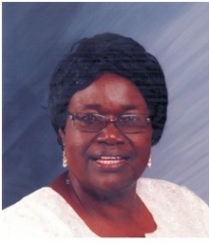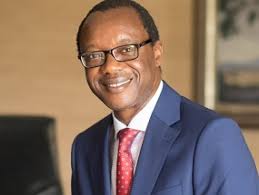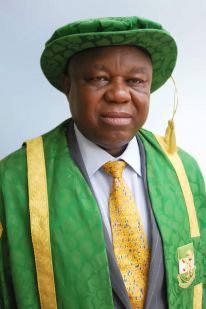 The AAP Consortium, through the AAP Bridge and other partnership grants such as Partnerships for Innovative Research in Africa (PIRA) grant program, has given the Egerton fraternity opportunities to conduct innovative research that will be useful to Kenya and Africa at large.
The AAP Consortium, through the AAP Bridge and other partnership grants such as Partnerships for Innovative Research in Africa (PIRA) grant program, has given the Egerton fraternity opportunities to conduct innovative research that will be useful to Kenya and Africa at large.
From the Public Dialogue Series on COVID-19 Pandemic Responses and Lessons Learned, I shared measures taken by Egerton University to mitigate the effects of the pandemic, and I also learnt and implemented some of the measures other institutions in Africa are doing on the same. The disruption was unprecedented and we responded innovatively.
In 2021 and beyond, I would like to see more partnerships, opportunities for dialogues and discussions, and calls for proposals targeted to institutions in the Global South.
Prof. Rose Mwonya, Vice Chancellor of Egerton University
 At the University of Pretoria we aim to transform lives through education, research, development and the use of science to solve problems, improve lives, and have a positive impact on society. At the core of our research is ensuring that we do research that matters so that we can transform lives and communities. Our Future Africa campus, that was officially opened last year is the first of its kind on the continent, and also affirms our commitment for transdisciplinary research on issues linked to the AAP`s six themes, which are of critical relevance to Africa’s sustainable development.
At the University of Pretoria we aim to transform lives through education, research, development and the use of science to solve problems, improve lives, and have a positive impact on society. At the core of our research is ensuring that we do research that matters so that we can transform lives and communities. Our Future Africa campus, that was officially opened last year is the first of its kind on the continent, and also affirms our commitment for transdisciplinary research on issues linked to the AAP`s six themes, which are of critical relevance to Africa’s sustainable development.
Our raison d'etre is why we are proud to be a member of the AAP Consortium as we are committed to working together to transform lives and address global challenges. We consider this as an important extension of our current strategic networks and platforms in and related to Africa, including the African Research Universities Alliance (ARUA), the Regional Universities Forum for Capacity Building in Agriculture (RUFORUM), and the Australia-Africa Universities Network (AAUN), all of which provide an even broader reach for any collaborative activities undertaken by UP and AAP.
The work we have done this year with the AAP Consortium has increased the visibility of the work of UP researchers and experts, helping us reach beyond academic research communities. We look forward to collaborating more to find solutions to pressing challenges globally.
 The AAP has made significant impact in the University of Nigeria, Nsukka. Our collaboration with the consortium has increased the opportunity for our staff and students to network globally and collaborate with their peers, especially through the AAP Bridge. Among other benefits, it may be pertinent to inform that three of our faculty members benefitted from AAP’s Early Career Fellowship in 2019/2020 and one is already selected for the 2021 round of the programme. We also have a number of AAP-facilitated grants running in our university. At the heat of the lockdown occasioned by the COVID-19 pandemic, the AAP provided a platform for us to share our thoughts on the opportunities and challenges of the pandemic to higher education, at the AAP Public Dialogue series #2. Those opportunities meant a lot to us at the University of Nigeria and we are glad to be part of the AAP consortium. AAP has further linked and moderated discussions between our University and some organizations for collaborations and assistance in cushioning the effects of the COVID 19 pandemic and to grants proposal tournaments.
The AAP has made significant impact in the University of Nigeria, Nsukka. Our collaboration with the consortium has increased the opportunity for our staff and students to network globally and collaborate with their peers, especially through the AAP Bridge. Among other benefits, it may be pertinent to inform that three of our faculty members benefitted from AAP’s Early Career Fellowship in 2019/2020 and one is already selected for the 2021 round of the programme. We also have a number of AAP-facilitated grants running in our university. At the heat of the lockdown occasioned by the COVID-19 pandemic, the AAP provided a platform for us to share our thoughts on the opportunities and challenges of the pandemic to higher education, at the AAP Public Dialogue series #2. Those opportunities meant a lot to us at the University of Nigeria and we are glad to be part of the AAP consortium. AAP has further linked and moderated discussions between our University and some organizations for collaborations and assistance in cushioning the effects of the COVID 19 pandemic and to grants proposal tournaments.
Moving forward, we are hoping that the AAP will assist us in facilitating the provision of technical and funding support to help us address some critical challenges, especially our ICT infrastructure which requires immediate upgrade to enable us fully implement a blend of physical and virtual learning environments.